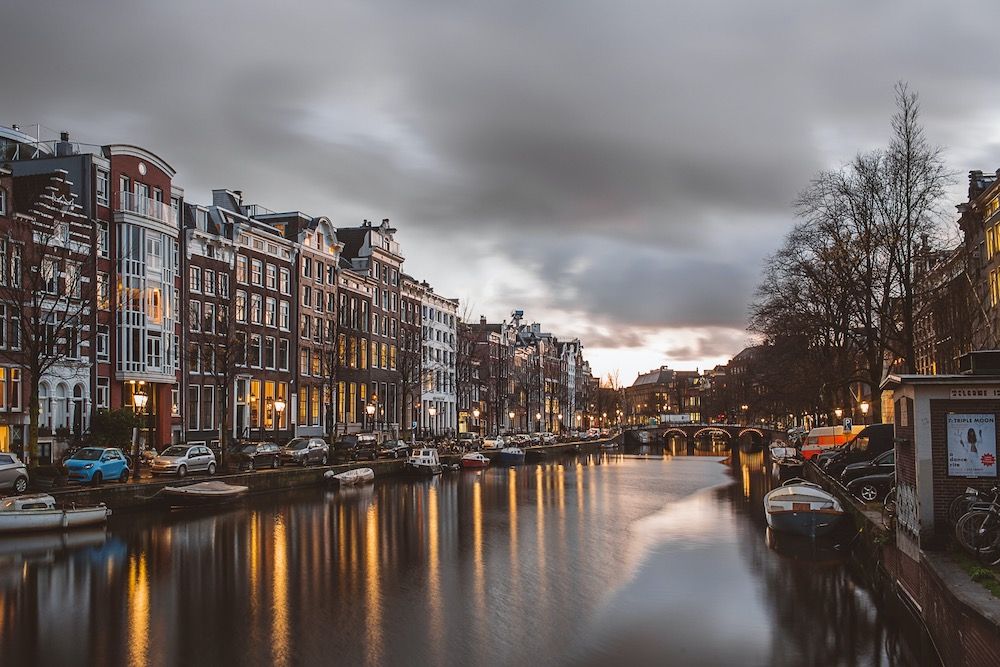
75% of Amsterdam restaurants responding to a 2020 survey conducted by Table Sage believe the government should be more supportive of sustainability efforts in the local dining industry.
The dining industry has demonstrated an increasing commitment to sustainability. All over the world, independent eateries in particular have led the way as the industry takes accountability for its impact on our environment and our communities. The COVID-19 pandemic has posed a serious threat to this trend, albeit one that many are committed to mitigating. Eateries are now faced with the challenges of keeping as many people as possible employed; keeping their clients, staff, and suppliers physically safe; and adapting measures to make their businesses resilient. With the pandemic’s end uncertain and lockdowns continuously unpredictable, this is no easy feat.
In Autumn 2020, Table Sage conducted a survey of restaurants in Amsterdam aimed at understanding the impact of COVID-19 on local eatery sustainability in order to identify avenues for multi-stakeholder support. For starters, the survey found that 58% of respondents had begun offering takeaway directly in response to the pandemic. While this has the potential to allow businesses to continue to operate safely, takeaway also comes with its own challenges surrounding sustainability and packaging.
“The high cost of eco-packaging and the difficulty of sourcing alternatives can be existential ... many businesses just don’t know where to begin”
With indoor and in some cases all seated dining banned in major cities all over the world, the specter of takeaway packaging looms over us more heavily than ever before. Amongst the difficulties that are increasingly urgent for restaurants is the sourcing of ecological packaging for this service. Although this may not be an obstacle for larger industry players with brand visibility, the Table Sage survey showed that for the independent eateries that are often trailblazers in conscious dining and the backbone of local economies, the high cost of eco-packaging and the barriers to sourcing alternatives can be existential. In addition to this, many businesses just don’t know where to begin.
“67% of respondents [recognize] eco-packaging as core to their business principles and 82% ... [have] chosen an eco-packaging option”
Still, we have reason to be hopeful. While the challenges to sustainable dining multiply, commitment to conscious dining continues to grow with even major players such as UberEATS taking note of the importance of sustainable packaging to its users, within its rating system. In Amsterdam, respondents to the Table Sage survey voiced both a concern for the impact of the dining industry on the environment and a desire for us to collectively do better. Their words matched their actions, with 67% of respondents recognizing eco-packaging as core to their business principles and 82% of respondents having found and chosen an eco-packaging option based on their ethics.
Despite the continued commitment that eateries have demonstrated towards operating according to the principles of conscious dining, the fact remains that surviving sustainably during a pandemic is difficult. An online search of the word “sustainability” today comes up with a wealth of information. According to one of the survey's respondents, an additional problem is that there is too much information, and much of it is seemingly contradictory. It is difficult for eateries to know what to prioritize because in reality, sustainability means something entirely different for an individual in Izmir and for a cafe in Copenhagen, or even for a raw vegan restaurant in Amsterdam and a restaurant serving the exact same menu in Kinshasa. There is a clear need for information to be tailored to different stakeholders in different contexts, a principle which applies beyond the city of Amsterdam and beyond the dining industry.
“As the pandemic has continued ... government efforts have slowed and many eateries are struggling to both remain open and remain sustainable”
Government responses to the pandemic’s impact on the dining industry have been varied across the world, ranging from local grant programs to government subsidized restaurant meals to no response at all. In many cases, as the pandemic has continued to grind on, government efforts have slowed and many eateries are struggling to both remain open and remain sustainable without this much needed support. Eateries that are trying to do right by their communities and for the world should not be left at a loss for support, and yet many eateries feel abandoned by their local governments. In fact, 75% of respondents to the Table Sage survey hold the sentiment that government bodies should do more to support restaurants in operating sustainably. The loss of government interest in the dining industry is a trend that urgently needs to be reversed all over the world.
“Netherlands based Ozarka’s reusable food packaging service [shows] us that when we work together, waste is a choice and not a given”
Fortunately, there are ways in which both pre-existing and new stakeholders can work to identify and fill gaps in sustainability efforts at this time. Social enterprises, for example, are providing innovative and fast-growing solutions to these challenges. Danish Too Good To Go uses a circular understanding of sustainability to decrease restaurant food waste through a sophisticated business-to-consumer matching model. Meanwhile, Netherlands based Ozarka’s reusable food packaging service, due to launch this month, likewise highlights that waste is a choice and not a given. These alternatives show that there are multiple avenues to take advantage of in our continued efforts towards a more sustainable future.
While there is increasing concern surrounding the dining industry's impact on people and the planet, opportunities to support restaurants' positive efforts exist and must be utilized with priority as the pandemic continues.